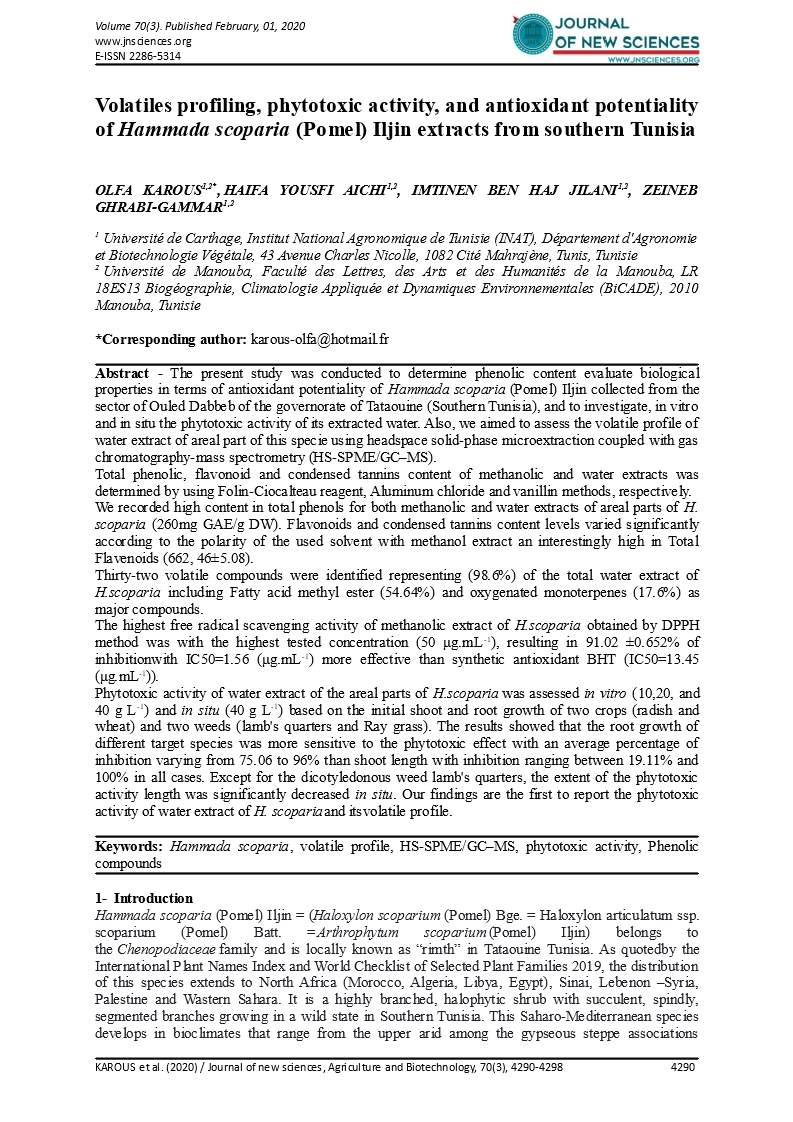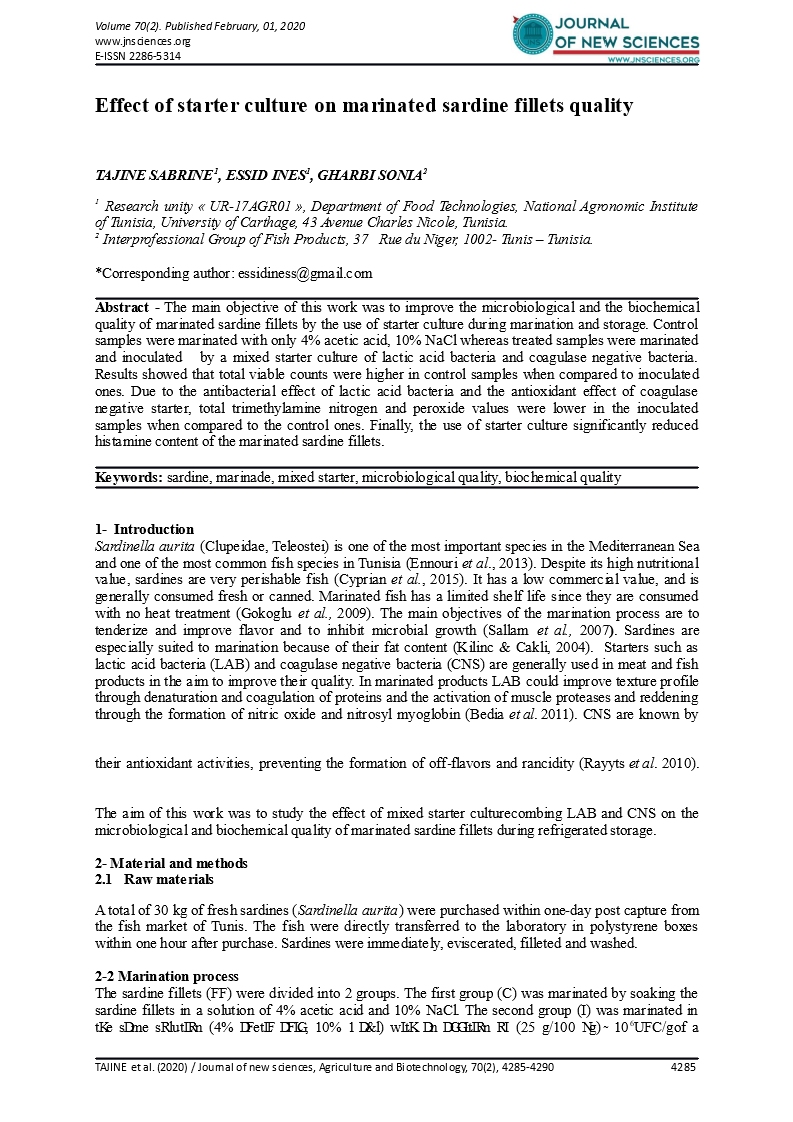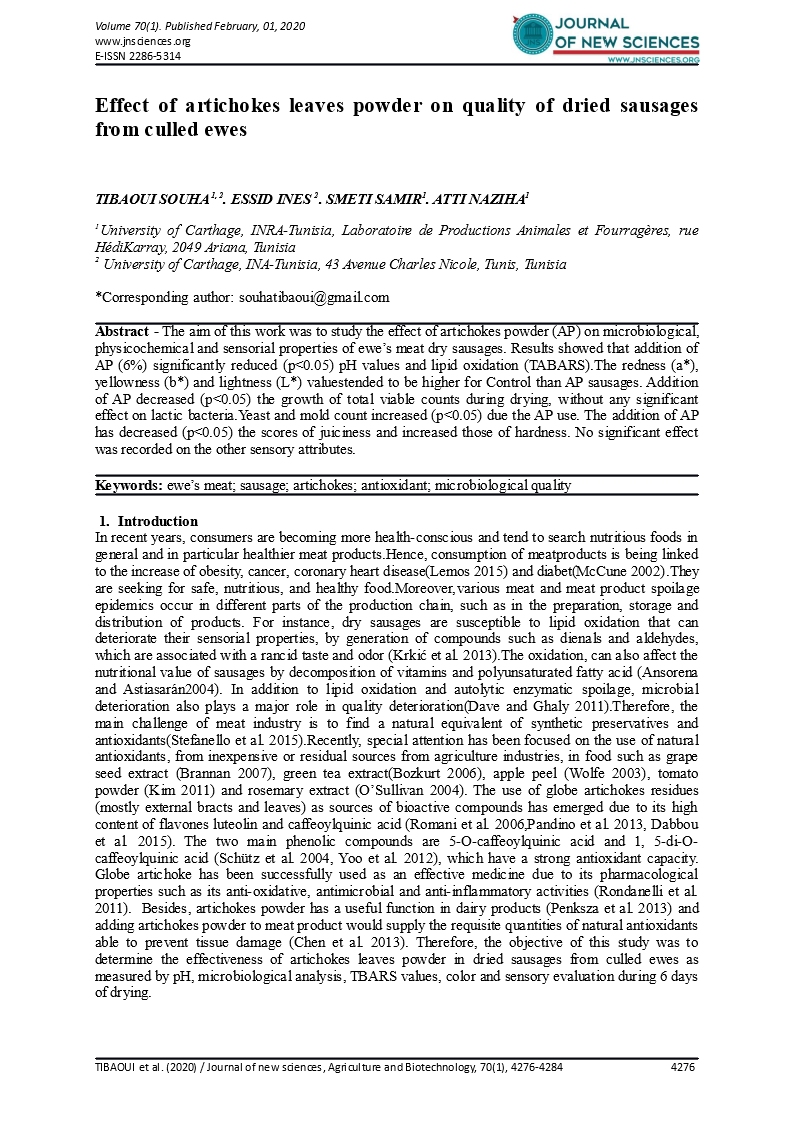- Category: Volume 70
- Hits: 4076
Volatiles profiling, phytotoxic activity, and antioxidant potentiality of Hammada scoparia (Pomel) Iljin extracts from southern Tunisia

OLFA KAROUS1,2
HAIFA YOUSFI AICHI1,2
IMTINEN BEN HAJ JILANI1,2
ZEINEB GHRABI-GAMMAR1,2
1 Université de Carthage, Institut National Agronomique de Tunisie (INAT), Département d'Agronomie et Biotechnologie Végétale, 43 Avenue Charles Nicolle, 1082 Cité Mahrajène, Tunis, Tunisie
2 Université de Manouba, Faculté des Lettres, des Arts et des Humanités de la Manouba, LR 18ES13 Biogéographie, Climatologie Appliquée et Dynamiques Environnementales (BiCADE), 2010 Manouba, Tunisie
Abstract - The present study was conducted to determine phenolic content evaluate biological properties in terms of antioxidant potentiality of Hammada scoparia (Pomel) Iljin collected from the sector of Ouled Dabbeb of the governorate of Tataouine (Southern Tunisia), and to investigate, in vitro and in situ the phytotoxic activity of its extracted water. Also, we aimed to assess the volatile profile of water extract of areal part of this specie using headspace solid-phase microextraction coupled with gas chromatography-mass spectrometry (HS-SPME/GC–MS). Total phenolic, flavonoid and condensed tannins content of methanolic and water extracts was determined by using Folin-Ciocalteau reagent, Aluminum chloride and vanillin methods, respectively. We recorded high content in total phenols for both methanolic and water extracts of areal parts of H. scoparia (260mg GAE/g DW). Flavonoids and condensed tannins content levels varied significantly according to the polarity of the used solvent with methanol extract an interestingly high in Total Flavenoids (662, 46±5.08). Thirty-two volatile compounds were identified representing (98.6%) of the total water extract of H.scoparia including Fatty acid methyl ester (54.64%) and oxygenated monoterpenes (17.6%) as major compounds. The highest free radical scavenging activity of methanolic extract of H.scoparia obtained by DPPH method was with the highest tested concentration (50 μg.mL-1), resulting in 91.02 ±0.652% of inhibitionwith IC50=1.56 (μg.mL-1) more effective than synthetic antioxidant BHT (IC50=13.45 (μg.mL-1)). Phytotoxic activity of water extract of the areal parts of H.scoparia was assessed in vitro (10,20, and 40 g L-1) and in situ (40 g L-1) based on the initial shoot and root growth of two crops (radish and wheat) and two weeds (lamb's quarters and Ray grass). The results showed that the root growth of different target species was more sensitive to the phytotoxic effect with an average percentage of inhibition varying from 75.06 to 96% than shoot length with inhibition ranging between 19.11% and 100% in all cases. Except for the dicotyledonous weed lamb's quarters, the extent of the phytotoxic activity length was significantly decreased in situ. Our findings are the first to report the phytotoxic activity of water extract of H. scopariaand itsvolatile profile.
Keywords: Hammada scoparia, volatile profile, HS-SPME/GC–MS, phytotoxic activity, Phenolic compounds


